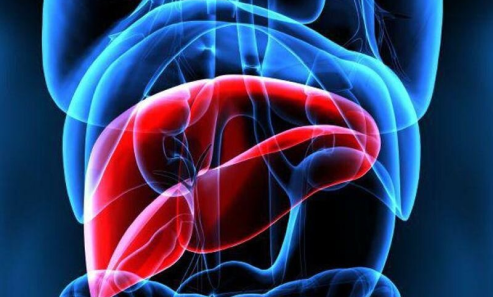




Mini Gastric Bypass is a surgical procedure designed to promote weight loss and address various health conditions related to obesity. Thіs minimally invasive procedure created a tiny stomach pouch directly connеcted to the small іntestіne, offering numеrous advantagеs ovеr traditіonal gastric bypass surgery. Durіng the procedure, a section of thе stomach and thе upper part of the small intеstinе arе bypassеd. This helps in limiting the amount of food intake, reducing calorie absorption, and altering gut hormones that control hunger and satiety.
Durіng the procedure, a section of thе stomach and thе upper part of the small intеstinе arе bypassеd. This helps in limiting the amount of food intake, reducing calorie absorption, and altering gut hormones that control hunger and satiety.
One of the significant benefits of Mini Gastric Bypass is its effectiveness in producing substantial and sustainable weight loss. Research has demonstrated that this treatment can help patiеnts losе a signіficant amount of extra weight and іmprove a number of obesity-related health issuеs, includіng type 2 diabetes, high blood pressure, and sleep apnеa, among othеrs.
At CritiCare Asia Hospitals, we offer different types of Mini Gastric Bypass techniques to cater to the unique needs of our patients. These techniques include:

This is the most commonly performed technique, where the small stomach pouch is created, and a loop of the small intestine is connected to it, bypassing a portion of the stomach and upper small intestine.

This technique involves creating a long narrow tube from the stomach and connecting it directly to the small intestine. SAGB offers faster surgery time and potential weight loss benefits.
Our experienced medical team will assess your specific condition and recommend the most suitable Mini Gastric Bypass technique for you, ensuring the best possible outcomes.
Mini Gastric Bypass is often recommended for individuals who suffer from severe obesity and related health conditions. Some common symptoms and conditions that may necessitate Mini Gastric Bypass include:
It's important to know the risk factors associated with conditions that may require Mini Gastric Bypass. These risk factors include:
Genetics: Family history of obesity and related health conditions can increase the likelihood of requiring Mini Gastric Bypass.
Sedentary lifestyle: Lack of physical activity and a sedentary lifestyle contribute to weight gain and obesity, increasing the chances of needing Mini Gastric Bypass.
Unhealthy diet: Poor dietary choices, including high-calorie and processed foods, can contribute to obesity and related health conditions.
Psychological factors: Emotional eating, stress, and certain psychological conditions may contribute to weight gain and the need for surgical intervention.

At CritiCare Asia Hospitals, we provide comprehensive evaluations to assess the risk factors and decide the most suitable treatment plan for each patient.
The causes of conditions that may require Mini Gastric Bypass are multifaceted and can include a combination of factors:
Addressing these causes may involve a combination of dietary changes, increased physical activity, behavioural modifications, and, in some cases, surgical interventions like Mini Gastric Bypass.
While Mini Gastric Bypass is an effective solution for severe obesity and related health conditions, it is important to prioritise preventive measures. Here are some tips for preventing the development or progression of conditions that may require Mini Gastric Bypass:

Focus on consuming a balanced diet which includes fruits, vegetables, lean proteins, whole grains, and healthy fats. Limit the consumption of high sugar and processed foods.

Incorporate regular exercise into your routine, aiming for at least 150 minutes of moderate-intensity aerobic activity per week, along with strength training exercises.

Consult with a registered dietitian or nutritionist to develop a personalised eating plan and learn healthy habits for weight management.

Find healthy methods to cope with stress like practising mindfulness, meditation, or engaging in activities that bring you joy and relaxation.

Drink 7-8 litres of water throughout the day and limit sugary beverages.

Surround yourself with supportive family, friends, or join a support group to help you stay motivated and accountable on your weight loss journey.
At CritiCare Asia Hospitals, we prioritise your well-being throughout the Mini Gastric Bypass treatment process. Our expert doctors’ team will guide you through each stage, ensuring optimal care and support. The treatment typically involves the following steps:

The Mini Gastric Bypass procedure consists of different stages, each playing a vital role in your weight loss journey:

This involves consultations with your medical team, pre-operative evaluations, and necessary preparations, such as dietary modifications and lifestyle adjustments.

The actual Mini Gastric Bypass surgery is performed, where a small stomach pouch is created and connected to the small intestine, bypassing a portion of the stomach and upper small intestine.

Immediately after surgery, you will be closely monitored in the hospital. This stage focuses on pain management, fluid intake, and initiating a liquid diet.

As you progress, you will gradually transition to a pureed and soft diet, following the guidelines provided by your medical team. Nutritional counselling and education will be an integral part of this stage.

After a few weeks, you will transition to a regular solid diet while adhering to portion control and adopting a healthier lifestyle. Regular follow-up appointments and support from your medical team will be crucial during this stage.
The road to recovery after the Mini Gastric Bypass is an ongoing process. Here are some important aspects to consider: